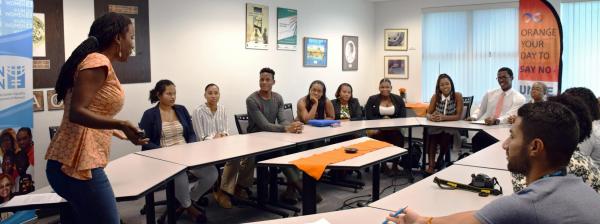Many of us have experienced the discomfort of finding ourselves in conversations about religion while abroad. In many parts of the world it is culturally and socially inappropriate to discuss religious topics openly. In the United States—despite what is observed in national politics—it’s generally bad taste to discuss religion in polite conversation. In other places, like Malaysia, it is downright taboo and potentially dangerous. And so, to err on the side of safety, many travellers decide to avoid the topic entirely.
This stance, however, does run the risk of intentionally blinding us to phenomena that deeply impacts many, causing us to miss rich opportunities for connection and shared understanding and growth.
We move forward in the 21st century, shedding light on historically neglected peoples and communities—and rightly so. At the same time, it behooves us not to lose sight of a massive portion of humanity that in some ways is becoming more apprehensive about sharing their experiences abroad.
As a director of study abroad at Centre College, I find myself constantly in conversation with people inside and outside the academic community. We often reminisce about first trips overseas, exchanging laughs about miscommunication in foreign languages, recipes of exotic dishes, and vivid memories of rare epiphanies.
I am always surprised by the sheer number of students, grandparents, doctors and public servants whose experiences initially occurred during religiously-motivated service trips or mission trips. But I shouldn’t be. During those conversations, I often sense that trained social impulse to avoid religious topics creeping up, but I try to resist and lean in to learn more.
For centuries, pilgrimages from the Jokhang Temple to Santiago de Compostela have punctuated the lives of millions of travellers. In the United States, missionary service is on the rise. In 1989, only 120,000 North Americans participated in short-term mission trips (STMs). By 2003, that number increased 10-fold, and in 2010 it approached three million.
What was once exceptional is now commonplace in American Christian congregations. It's estimated that today's church members have a 20 to 25 per cent likelihood of going on a STM trip.
With so many interacting with foreign cultures and peoples from a religious perspective, it strikes me as a massive lost opportunity simply to avoid experiences because they are faith-based. If rites of passage, religious foundation myths, and contemporary higher education all put such a premium on experiences abroad, there must be some common grounds worth exploring together.
Surely, there are ways of sharing and evaluating these enriching experiences without the need to proselytize or to slip into discussions of dogma and belief.
Surely, there are ways of sharing and evaluating these enriching experiences without the need to proselytize or to slip into discussions of dogma and belief. It should be no less difficult, in my opinion, to speak of intercultural encounters and competencies in faith-based contexts than in others. We just need to make it about relationships and growth.
When tempted to avoid conversation about travel motivated by religion—whether you’re the speaker or the listener—pause and reflect on the many ways connections can still be made with fellow travellers. Instead of letting it become an obstacle to exchange, make it another opportunity for growth.
Consider these 10 questions to generate fruitful discussion. None of them have anything to do with religious devotion or deities:
-
What special relationships were formed?
-
How were world views or values affected by travel?
-
What local ways of life were appreciated and experimented with?
-
What cultural elements seemed to affect local behaviour and communication?
-
How was understanding of local historical, political and religious contexts affected?
-
What skills were acquired?
-
What was entertaining? What was enlightening?
-
How was growth or maturity affected?
-
What languages were learned and used?
-
What contributions were made?
With travel related to service and social justice on the rise, it only makes sense to invite to the discussion the millions of spiritually motivated wanderers who have been offering aid of all kinds to other for centuries.
Add this article to your reading list




